Introduction
Here’s the thing: fats have had many contradicting messages surrounding them throughout the years.
We all are aware that fats have been vilified. But it is so important to bust through the myths surrounding fats and get to the truth!
This week on The Goodness Lover Podcast we spoke with Dr. Matthew Nagra - Naturopathic Doctor who is a passionate advocate for evidence-based nutrition as medicine. After struggling with health issues throughout his childhood, Dr. Nagra decided to transition to a plant-based diet.
Watch the Interview:
We dove into Dr. Nagra's journey and years of education to learn about:
🍽 The different types of fats that are in our food
📖 Dietary sources of cholesterol and fat
🌱 The U.S. Dietary Guidelines for how much cholesterol should be included in your diet
👍 Why fats are an important macronutrient that aid in your intake of calories
🩸 Why LDL cholesterol is deemed the “bad” cholesterol and contributes to cardiovascular disease
And SO much more!
Additional Resources
To connect with Dr. Nagra and discover more of his work, you can find him on Instagram and Facebook. You can also visit his website here.Transcript
Sarah: Hello. And welcome back to The Goodness Lover show. Today, we're joined by Dr. Matthew Nagra who's a naturopathic doctor, who's here to completely demystify fats. Are they good? Are they bad? Do they cause heart disease? What's the deal at omegas? Does cholesterol matter? We cover it all. So let's dive in. Dr. Matthew Nagra, it's wonderful to have you today. We'll be talking all about fats and I'm excited to get into it. So thank you for joining us.
Dr. Matthew Nagra: Thanks for having me on all the way from Vancouver over here.
Sarah: Excellent. So fats were vilified and over time they've turned into some sort of elixir of the gods. So it would be great to find out what is the truth about fats? How to differentiate between all the different sources, its impact on disease, et cetera, if any? But first I think it would be great to hear from you. How did you get your passion for nutrition and what's your story?
Dr. Matthew Nagra: Yeah. So when I was younger, I was 15. I had a personal trainer, I was training for football. I'm also a lifelong soccer player. I had a bunch of health issues when I was younger. I had asthma, allergies, I was overweight, some other skin issues, and so on. And my personal trainer actually, unlike many out there promoted a very plant-based sort of plant-forward diet. He was very much not in the camp of dairy being something that's necessary. He kind of convinced me that that was one of the things I should try to ditch first. And I didn't really take him seriously for a long time. I was very young. I didn't think food had all that big of an impact on health, but he wanted me to record everything I ate.
So he wanted me to do a food diary and this is something I do with my patients as well. And so I just thought, well, he's going to see all the McDonald's and things that I'm eating and I'm going to get beat up in the gym, even worse than it already was. And so I decided I wanted to kind of trick him. I was just going to eat super clean. I didn't lie on the food diary. I was just going to change my diet on the spot. And so I ate way cleaner. I got rid of all the classic junk foods, got rid of the dairy, reduced my meat intake. I didn't completely eliminate it. Eating a lot more fruits, veggies, smoothies, that sort of thing. And I just felt better. I started losing weight.
My asthma seemed to do better. My allergies seemed to do better and I just thought, well, this is great. And maybe there's something to this. Maybe he's not so crazy after all. And so I stuck with it for the course of a couple of years, just learning more and more about these different types of plant-based diets and different types of foods within that kind of framework. And once I went to university, I was stuck eating cafeteria food. And I still ate, I'd say a lot healthier than most of my friends, but it wasn't quite up to where it was prior for me. And so over the course of the first semester, so between that and drinking on the weekends and all that kind of stuff, I saw my health kind of slide the other way. I could tell that I wasn't feeling quite as good.
And just one day in my second semester, February of 2011, I was sitting there at lunch. I was actually having chicken. I remember this very clearly. I'm in the cafeteria with all my friends. And I just said on the spot, "You know what? I'm just going strictly plant-based." I need to go all-in because for me, and this is different for everybody, but for me not allowing or living those treats so to speak because for me that can be a spiral. I can end up just, oh, I have one here and other there by the end of the day, it's 5, 6, 7 of them. And so I went overnight and that was it. And I've never really looked back since, and still since then, I've just learned more and more about the science behind nutrition.
I know my dad had some cardiovascular issues when he was a bit younger as well when he was 40 and I've seen him really turn that around with diet as well. And so I just wanted to help others do the same. And so that's what I do through my social media of course, with a lot of my posts there, but what I actually do in my practice here, right? I see patients who have either at risk or have cardiovascular disease, same with Type 2 diabetes, got health concerns, which I know you guys talk a lot about. So I'm turning that into a career and that's really what drives me to do it.
Sarah: Oh, beautiful. Thank you for sharing. Well, great. I can see how your own personal experience has given you a passion for nutrition and obviously the family as well. So let's get into fat. First of all, I guess we should start. What is it and what does it actually do in our body? How is it different to carbs and protein?
Dr. Matthew Nagra: So yeah, the carbs, protein, fat are the three main macronutrients. That's where you get all your calories from. You can also get calories from alcohol, but we don't want that to be one of your main sources of course. And carbohydrates are really that not always it depends on the type, but usually that quicker form of energy. And also you store carbohydrates in your muscle and your liver as something called glycogen, which also fuels activity, can fuel exercise, can just maintain blood sugar levels, fuel your brain, all sorts of good stuff. Protein, while it's involved with a variety of reactions within the body, it can also turn to carbohydrates to fuel you that way as well. And of course, it makes up muscle tissue, connective tissue, bone tissue, all of that. Now fats, which we're going to talk about today. They can also be used for energy, much like carbohydrates, but typically for more low... What's the word? More endurance sorts of activities as well as just for sustaining daily living.
Of course, it can be used as a fuel source for that and we can store fat. So body fat is our stored form that is a really good fuel source for us. It's a very energy-dense source for us to pull from when we need energy. Now we can eat fat and use that to store fat. We can also eat carbohydrates or other foods, which are other macronutrients, which can get converted into fat. So the fat you eat isn't necessarily going to be exactly the fat that you're pulling from for your energy and whatnot is just more easily stored as fat. And that's kind of how it can help fuel us there as well.
Sarah: Well said, thanks for the explanation. So I guess between the fats, people might've heard about saturated fat, poly, mono. I guess what should we, as consumers, be thinking about when we approach fat? And of course, I guess we're thinking about our keto friends, which obviously emphasizes fat. For you as a doctor, how do you feel when I guess someone comes into your clinic saying, "Yes, I've started keto. I eat mostly fat, or that's my goal." What's going through your head, what might be happening in their body?
Dr. Matthew Nagra: I want to know where the fat's coming from. That's number one. So I'm very confident in this that you can be very healthy on a high-fat diet. You can be very healthy on a low-fat diet. It just depends on where those calories are coming from. If you're getting a lot of fat from your nuts seeds, avocados, and so on, that's great. If you're getting a lot of your fat from the meat and the high-fat dairy products and the coconut oils and those sorts of things, not so good. So I always want to know, what exactly are you eating? Because you can do a plant-based keto diet. Although most of the time when they say they're doing keto, it's the other version.
Sarah: Okay. So why is the sources of fat from animal products and coconut oil not the same as the ones from nuts and seeds?
Dr. Matthew Nagra: Yeah, so it's because of the type of fast that they're made up. So animal foods typically that are high in fat will have high saturated fat content. Now, saturated fat, when you eat it raises your LDL cholesterol or bad cholesterol as it's said really, that's kind of a weird term to use, but what we'll use that because that's the common term, but it raises that. And then that is what can cause cardiovascular disease. It can actually end up in the walls of your artery. It can oxidize. It can turn into a plaque and harden. And then that can eventually break off and cause a heart attack. It causes a clot in the artery. That's the very quick version of what happens there. And so by eating more saturated fat, you raise that. Now polyunsaturated fats, which are your omega-3s, your omega-6s that you get from nuts and seeds, and certain types of vegetable oils, and so on.
That lowers the LDL cholesterol by the exact opposite mechanism that the saturated fat does. So they literally compete as far as maintaining your LDL levels. So we want to emphasize those polyunsaturated fats from things like nuts, seeds, avocado, and then we want to minimize the saturated fat from those other products, which again, coconut oil is about 90% saturated fat. So it has this huge reputation as being some sort of health food, but it's actually incredibly high in saturated fat. And really the only way to make coconut oil look good in a study is to compare it to butter. Compared to anything else, it falls flat.
Sarah: Right. Interesting. It's funny that you mentioned that because I was literally talking about this with my dad last night, he actually had a health scare this week. He had a mini-stroke of some kind. Yeah, it was really quite scary for all of us involved, but he's really assessing his diet right now. He's really motivated. And coconut oil, I was saying, "Oh dad, maybe you should think about lowering some of... " Because he's obsessed with all things coconut. And he eats pretty great but there's some things that I guess he could fix. And so he's like, "Oh, but I've heard some things saying that it's good that it's not the same as the animal fats and other people saying maybe don't have it." Do you have any thoughts on that? And I guess if someone was to look at the study of that study comparing it to butter, you'd be like oh, it's good, but is it good or is it just better? Yeah, what's the story there?
Dr. Matthew Nagra: Exactly. So the role in nutrition science is always to ask compared to what. You always have to look at what you're comparing to. So compared to butter, coconut oil actually seems to be a better choice. That's a very low bar to set it up butter, right? Compared to anything like olive oil for example, it wouldn't even come close. In fact, we just had a recent meta-analysis for those listening that's when you combine a whole bunch of studies and you look at what happens when you put all the statistics together, you find that replacing things like butter that are high in saturated fat with plant-based oils that are low in saturated fat, you actually lower your risk of cardiovascular disease, lower your risk of total death actually, which is significant.
So I would always want to look at it that way like okay, as compared to butter, what about other studies? Well, we have, again, a meta-analysis that was published January of last year, looking at coconut oil and its effect on LDL cholesterol in a whole bunch of different studies. And when you put all these studies together and you look at the impact of coconut oil itself on your LDL levels, it does raise LDL and that would lead to a higher risk of cardiovascular disease. So yeah, I would be very hesitant to recommend coconut oil consumption to anybody when we have other options.
Sarah: Great. No, that's great. Thanks. I'll pass it on to dad. So I guess, I don't know if it's too technical for our audience, but I'd be curious to get maybe a little bit of an explanation as to what you mean when you say LDL cholesterol. I know it's a term that gets thrown around a lot bad cholesterol and I'm totally aware of what you mean when it's a bit of a weird term to say it's bad cholesterol. So maybe if you can, in layman's terms, try to explain what you mean.
Dr. Matthew Nagra: Yeah. I wasn't sure how deep you wanted me to get, but I'll do that. So, LDL they're called low density lipoproteins. These are sort of fat and protein molecules that carry cholesterol. So we have an LDL particle and then you have LDL cholesterol, which is when the LDL particle is carrying cholesterol, if that makes sense. So that's what we call LDL cholesterol. Now, these LDL cholesterol, when they're in your arteries, they can interact with the artery wall and they have certain charges. Think of it almost like a magnet that pulls it in and holds it in the artery wall. Now, once it's in there and it's held there for a period of time, it can be attacked by immune cells. It can lead to these inflammatory reactions. You get this inflammation in the arterial wall, which eventually as the immune cells engulf or eat up the LDL cholesterol, it's basically puffs out into what's called a foam cell and then it hardens into a plaque.
So it's that initial interaction, that initial interaction between the LDL particle that's carrying all this cholesterol and the artery wall that pulls it in there and allows that to happen. So in reality, inflammation is actually a result of having too much LDL. When you have too much of that LDL and it gets pulled into the artery, then it triggers the inflammatory response. So you have a lot of people, especially in the low carb space saying that, "Oh, it's just inflammation that's the problem. It's not the LDL that doesn't matter." That's actually not true. The LDL is causing that. It's causing that reaction to happen. And so that is ultimately what we're talking about. And we should also note that LDL isn't the only lipoprotein that can cause this reaction to happen. It's just the most dominant one. It's the one that we see the most. It makes up about 90% of them. So it's a really good marker for overall risks. There are cases where you want to use other markers, but for the most part, LDL does the job for most people.
Sarah: Okay. Thank you for clearing that up.
Dr. Matthew Nagra: I hope that was clear.
Sarah: It was, it was. I always thought it was interesting because you just assume that it's just a big ball of fat or cholesterol or something you don't realize it sits actually at this protein shell carrying around the fat in the body but yeah, thanks for that. That was very clear. So I guess you mentioned cholesterol then, it's a little bit off-hours specifically fat topic sort of ish, but does dietary cholesterol matter? I know the scientific community, I guess there's been mixed messaging there. What's the truth?Dr. Matthew Nagra: Yeah. So the mixed messaging largely comes from the US Dietary Guidelines. They used to recommend keeping dietary cholesterol under 300 milligrams a day. They removed that 300-milligram limit and so now people look at that, especially again, in that more low carb animal-based kind of community. And they'll say, "Oh, see, there's no limit, it's safe. There's no unsafe level." Actually what the dietary guidelines say and I think this is word for word is to keep cholesterol intake as low as possible. So they got rid of the threshold by which it's safe, but now they're just saying keep it as low as possible. So, they are still recommending limiting it. Now does eating cholesterol affect your LDL cholesterol or your total blood cholesterol levels? It really depends. There is what we call a plateau effect. So if you already eat a lot of cholesterol, you just can't absorb more.
So you're going to peak at some level where just adding more isn't going to do anything. You think about the standard American diet, they're eating a lot of cholesterol. If you add more cholesterol to it, it's probably not going to do much. If you take a bunch of vegans, for example, who eat no cholesterol, right? They just eat plants and you gave them some cholesterol in the form of say eggs, their LDL and serum cholesterol would shoot up. And so that's really important to keep in mind.
Now we also should keep in mind that with respect to eggs, and this is maybe getting a little bit off of the dietary cholesterol topics specifically. But if we look at egg consumption and LDL cholesterol, it actually raises LDL cholesterol more than just dietary cholesterol by itself would do. And so there's other compounds, there is a little bit of saturated fat in eggs. There are choline in eggs may also raise LDL a little bit. There are other compounds there that can help exacerbate that. So when we look at egg intake, it actually raises your LDL more than you might think. So absolutely, eating cholesterol does raise LDL but the degree to which it does totally depends on how much you're eating at baseline.
Sarah: Makes sense when you say it like that. It doesn't seem that complicated after all. That's great. So I like how you mentioned before, the macronutrients don't necessarily matter as much as you said before, you can have a high-fat diet, low-fat diet and be healthy and good. It matters about where you're sourcing it from. Could you tell us a little bit more about that? What science do we have around, I guess, people having a high-fat diet either... I don't know what's in the literature as far as people on a high-fat diet that's mostly animal-based and how they fare versus maybe a high-fat diet, how they fare? What do we see in the literature?
Dr. Matthew Nagra: Yeah, I'm trying to think if we have direct comparisons between the animal-based high-fat versus a plant-based high-fat, but I'm not sure that we do. But what we do have is data on high-fat plant-based diets and data on high-fat animal-based diets. So David Jenkins is a researcher here in Canada. Actually is he already developed a portfolio diet and a whole bunch of great stuff there. He actually did some studies on what's called an Eco-Atkins diet. Now this is essentially a plant-based Atkins or a plant-based low-carb high-fat diet. And he found great results even compared to a low-fat vegetarian diet. I actually found better results with regard to cardiovascular risk factors. And part of the reason is that those polyunsaturated fats I mentioned before, they lower your LDL cholesterol more than anything else. So more than whole-grain carbohydrates will do more than basically any other macronutrient.
That is number one. And so when you're eating a diet really rich in those fats, you're going to actually lower your levels even more. And we see that if we look at health outcome data. So we look at research on say nut consumption and cardiovascular disease risk. It's probably one of the top few best foods to eat for reducing risks that way. Now, if we look at say high-fat animal-based diets, we actually have, this is a really great study recently, a study on healthy young women. I believe they were in their twenties or maybe early thirties and placing them on a high-fat animal-based keto diet. So the goal was to make their diet very similar to what most keto dieters are doing. And they found just astronomical increases in their LDL cholesterol. And this was a healthy group. This was a group who, again, probably didn't eat a whole ton of cholesterol.
Probably had a good saturated fat intake and all that. And when you just compound all of the saturated fat and cholesterol on top of that, it shot rate up and it was quite tragic. We also have research comparing a low-fat plant-based diet to a high-fat animal-based diet in what are called metabolic wards. We have them volunteer to live in a hospital for a period of, I can't recall if it was a month or two months or somewhere along that timeline and you control everything they eat. So you put out all the food, you see if they can eat as much as they want, whatever they don't eat you take away. And they found that again, as far as cardiovascular risk factors go, the low-fat plant-based group did a lot better than the high-fat animal-based group. Again, that's not the comparison of the high-fat plant-based to the high-fat animal-based, but based on the research that we do have on each of these diets individually, we can be pretty confident that there's a huge difference there.
Sarah: Thank you. Yeah. Do you have a question?
Matt: Yeah, I was just curious as to, what do you think are the role because I feel like it's like this tennis match between the cholesterol fats that are happening and people are serving that's other team serving. Is there some form of industry capture going on? What is maybe the bigger picture going on here with how this research has played out?
Dr. Matthew Nagra: I think it's a part of that. If we go back, I know you mentioned a little bit about how this over the course of decades, it's gone through this whole back and forth with fat. Well, if we look at the original dietary guidelines from 1980 or whenever they started, they did recommend keeping fat intake. I think it was under 30% of calories or something like that, total fat intake. But if you read the fine print, their reason for that was because they wanted to keep saturated fat intake under 10%, because that's where cardiovascular disease risk peaks. Now over time, they've changed that they've gotten rid of the fat recommendation altogether, and now they say just limit saturated fat to 10% of calories. Right? And so that's a better way to put it because we know that you can eat a higher fat diet, but people take that to mean that, or a lot of the local community takes that to mean, oh, dietary guidelines are saying eat a low-fat diet.
No, they aren't. They actually emphasize the benefits of things like olive oils and that. Now on the note of industry has that involved, I mean, with regard to some of the research, absolutely. There was a review published last year with the most hilarious conflicts of interest list I've ever seen. It was so long and they were reviewing saturated fat and they were literally misquoting the exact studies that they were referencing. It was really tragic. And it picked up a lot of steam. It was all over the place, all over the media and everything. And a colleague of mine actually wrote up a big review on it. He went through every single of their hundred something references, whatever it was and fact-checked everything and wrote up how many things they got wrong.
I helped out with that a little bit too. And I don't think these researchers are smart. I don't think that was an accident. At the same time, there's a review looking at, or a pooled analysis. Took three different studies and they put all the data together on dairy fat and they were comparing it to different fat sources. So vegetable fats, meat fats, refined carbs, whole grain carbs. And they found that replacing the dairy fat with things like meat fat raises risks. So if you replace dairy with meat, your risk goes up. You replace dairy with vegetable fats or the polyunsaturated fats or whole-grain carbohydrates, you lower risk. But if you replace refined carbohydrates, nothing happens. They're both similar, right? Now, the conclusions of this study and I actually don't even know if there was... I haven't checked the conflicts of interest on that, but the conclusions of the study are that dairy did not increase risk.
And again, that comes back to compared to what? Right. Compared to most of the things on their list that actually increased risk aside from the meat and aside from the refined carbohydrates. And so there's just the way that things get spun. There was another study from two years ago, looking at red meat versus white meat versus plant-based protein. And they found that compared to red and white meat, plant-based protein lowered LDL and Apo B, which is another marker for cardiovascular disease. But there was no difference between red and white meat. What do the headlines say there? They say red meat is no worse than white meat. Not that plant-based protein was the best, right? And so there's just all these different ways that these results can get spun to suit a specific bias. And so I think you're right.
I think there is some sort of industry bias at play. I think there's also an individual bias. A lot of the time I see these people online posting all sorts of stuff and I think it just has to do with the fact that they really liked to eat those foods and they don't want to make it seem bad. But then on the same time you've got vegans and I get accused of this all the time of skewing data in the other direction because we have ideological reasons for adopting our diet. Although I try to be very fair in my interpretations but you get it on all sides. And I think the blame for stuff like that often gets thrown unfairly at people like vegans who have, I guess, name for the way that they're eating. The keto people are biased. The vegans are biased, but oh, I'm a moderation guy so I'm not biased. No, you're actually biased towards moderation. Right. There's that as well. So yeah, those are just a few of my thoughts on that topic.
Sarah: Thank you.
Matt: Because yeah, it's interesting. You're saying that because I guess some of the people that would counter-argue the plant-based approach would say, well, there's certain people groups that have adapted to this style of eating or if you look at this data here or there, it seems obvious that we can live like this. I'm just curious as to what is the role of our overall gut health? So we know when someone goes keto that the microbiome adapts quite quickly to this change in their dietary habits. And what role is just the general foundation of someone's gut health if they were to shift say I'm going to try keto but their gut they're in some level of dysbiosis, they've got leaky gut, does that impact anything in your experience?
Dr. Matthew Nagra: So there's a couple things there. I feel like there's a lot to learn about gut health still as far as the science goes, we just don't know a ton. But with regard to foods or dietary patterns that are associated with better, or what will be considered healthier overall gut microbiome, it is typically, plant-based typically with a good diversity of plant foods. Now, as far as what about their baseline sort of gut microbiome or gut health, there can be challenges to certain things like say ramping up fiber intake super fast. In cases like that, where someone's having a lot of gut distress, I'll often take a really slow approach and we'll go even break it down if we need to individual food groups and go from there. And we'll slowly transition over. Keeping in mind that for long-term overall risk of really hard health outcomes like cardiovascular disease and so on, this is the best way to go.
And if the person really wants to make that sort of a switch, I'll work with them on that, but we may need to take a slower, in some cases. At the same time and this is obviously anecdotal, you hear about people on a carnivore diet or a whatever diet my gut issues all went away. Mind you, you have some talking about their explosive diarrhea and all this other stuff going on, but then you have some saying that all their gut issues went away. Well, I understand that. I mean, it's a complete elimination diet. You're eliminating everything that could possibly be causing problems.
It doesn't mean that you need to eliminate everything, right. It means that you can probably challenge in those foods one at a time and try to figure out what's going on a typical elimination challenge. So I definitely think that baseline gut health or the gut microbiome and all of that can play a role in how suited an individual or how easy it will be for an individual to adopt certain dietary patterns. But that stuff can change really fast. We know how quick we can change the gut microbiome. We know that we can adapt in a lot of cases with very few outliers. So I don't think it's a complete limitation.
Sarah: Thank you. Okay. So let's go on to oils. What's the deal? Are they good? Are they bad? What's the nuance?
Dr. Matthew Nagra: So it depends. So again, going to coconut oil or palm oil, those high saturated fat oils, butter we'll throw that in the mix. I would say typically less good, typically harmful when replacing other types of oils for cardiovascular risk. Now things like olive oil, olive oil, especially extra-virgin olive oil is associated with just fantastic health outcomes across the board. Overall, very, very positive. There is a camp, especially in the plant-based sort of space that believes that even olive oil is harmful, but they're based on these really short term studies of what happens to an artery when you have really high amounts of and it wasn't even extra Virgin olive oil but refined olive oil, really huge dose in a short amount of time what happens to your artery function. Now that has never been shown to actually cause cardiovascular disease. It has never actually been shown to do so.
And when we have research on olive oil intake, an actual heart attack risk, for example, we should go with that. And it shows that it's beneficial, even when we go to seed oils, which are a very controversial topic as well. They also seem to produce very good effects on things like LDL cholesterol and actual health outcomes like cardiovascular disease. Now, the big concern with going crazy with oils is actually the caloric density, the amount of calories you're getting. You're getting roughly 120 calories per tablespoon. And if I was to add olive oil or something to my salad, I'm probably adding two or three tablespoons. That's 240 to 360 calories just from the oil alone before anything else. I do salads not super calorie dense so maybe that's a bad example. But especially if you're cooking in oils and things too, it's just going to add up a compound throughout the day. So from a weight management perspective, it can be detrimental. But from a cardiovascular health or overall health standpoint, I don't see any issue with it.
Sarah: Great. That's really balanced. Thank you. Okay. So I was going to ask before, so you said before things like olive oil, they kind of work to lower LDL. So how does that work? Can you explain what is HDL? How do these other fats do the opposite thing to saturated fats?
Dr. Matthew Nagra: Saturated fat, how it raises your LDL is we have receptors on say in our liver that when the blood flows through there, they can pull the LDL out of the bloodstream and into the cells. That's good. You get it out of the bloodstream where it's going to cause problems. And you get to places where we need those fats, and they can do their job. And when you need saturated fats or a lot of saturated fat, you decrease the number of LDL receptors. So if you have less LDL receptors pulling the LDL out of the bloodstream, you're just going to have more in the bloodstream. It's going to go up. And that's how that happens. It also tends to happen with age. So as you age, your LDL receptor activity decreases, there's other factors that can affect it as well. But that's the primary mechanism for saturated fat.
Now, polyunsaturated fats do the opposite. So nuts and seeds, for example, they actually increase the LDL receptor activity so you're pulling more LDL out of the bloodstream. So you're decreasing your LDL cholesterol concentration. So they work completely opposite. There are other compounds though that also have benefit like fiber, for example. Certain types of fibers like beta-glucans or psyllium and a few others. They actually trap bile in the gut. So you excrete it through your bowel movements, so you don't reabsorb it. It's made of cholesterol. So if you're not reabsorbing it, you're not going to have as high of a serum cholesterol or LDL cholesterol either. So there's that mechanism by which you're lowering it. There are just so many mechanisms at play here and different sorts of plant foods seem to lower LDL by different mechanisms. So if you eat this variety of foods that have these different sorts of activities, you can really have a powerful effect on your LDL concentration.
Sarah: Okay, great. I'd love to ask you around omega-3s. Obviously, fatty fish, the usual go-to for someone that's thinking about raising their omega-3s, what do you think about that firstly? And then secondly, if you were to go plant-based like how many hemp seeds do you have to eat to make sure you get enough omega?
Dr. Matthew Nagra: Okay. Yeah. So, there's multiple types. We'll say there's three main types of omega-3 fats. There's ALA or alpha-linolenic acid. That's the type you get from plants. You can also get it on animal products, but it's the only type you'll find in plants like flax seeds and chia seeds, walnuts, and so on. Then there's eicosapentaenoic acid, which is EPA and there's docosahexaenoic acid, which is DHA. So I just remember ALA, EPA, DHA. So from fish, you're going to get that EPA and that DHA pre-form. You're getting it in very, very small amounts in other animal products as well, but primarily fish. Now there's a thought out there that you need to be consuming those fats, the EPA and DHA because our body doesn't convert enough of the ALA into EPA and DHA. Now, I actually disagree with that because we do have research, really good research showing that ALA does convert to EPA very reliably.
We know that we can raise EPA status, but then with regard to DHA, while vegans do have lower levels of DHA, typically, there's actually no bare minimum recommendation for intake for the general healthy population. And if you compare vegans to say fish eaters for the outcomes that would result from taking an EPA or DHA, there's no difference. The vegans do just as well or the argument is maybe the vegans do even better. I mean, who knows? But ultimately, the final kind of nail in the coffin for that is that we have substitution analysis. So we actually have research looking at what happens when you replace fish with beans or nuts or whole grains. And then again, no difference in actual health outcomes. So what we tend to see is when we look at research that finds that higher levels of EPA, DHA are associated with better health.
They're not looking at the overall diet. We can assume that those with the highest EPA or DHA are people who are eating more fish. We can also assume that people who are eating more fish are eating less meat. And we know that saturated fat raises cardiovascular disease risk as I mentioned and Alzheimer's risk. So the benefits from fish may actually be the fact that they're replacing a worst things. And we know this because we have it was called a Cochrane Review as a massive, I don't even know how many pages. It was a ridiculous number of pages. They came out last year looking at different omega-3 intake and different health outcomes. And when replacing saturated fat, the omega-3s were beneficial. When replacing other types of omega-3s or omega-6 fats, they were not beneficial. So it seemed to be neutral across the board.
So with all of that being said, I think the biggest benefit from fish intaker omega-3s is actually the fact that they're crowding out worse things, but there are certain populations where that's not the case. So if you have cardiovascular disease, if you have mild cognitive impairment, if you're pregnant or breastfeeding, there does seem to actually be benefit to supplementing omega-3s in those cases and I would typically recommend it to my patients. But for an otherwise healthy adult, who's eating a lot of plant-based omega-3s, I just don't see much evidence pointing to there being a need for it or being benefit. Do as you will. I mean, if you want to really take the precautionary principle and just make sure you're covering all your bases, hey, that's fine. I just have a problem recommending that as a blanket to everybody, especially when it's one of the more expensive supplements too.
And it hasn't been shown to really be all that beneficial on top of everything else. So, that would be my stance on it. But as far as plant-based omega-3 sources, one tablespoon of ground flax really gets you your daily requirement. I would say just double it. That's two tablespoons of ground flax. That's fantastic for hemp seeds. I think you need around three tablespoons to get the same amount. Chia seeds to be about the same as flax. Walnuts, a small handful should do it. Soy is actually a pretty good source too. So it ends up being really easy to hit that target if you're eating a pretty good overall plant-based diet.
Sarah: Great. Thanks.
Matt: Awesome. So I'm curious from a practical perspective with how you treat your patients. The average person that's coming in that maybe heard this conversation, they're like, "Okay, so basically, what do you want me to do, doctor? I just want to be a good student, get straight A's from you. What's your best recommendation?"
Dr. Matthew Nagra: So the tough thing about that is it depends so much on where you're at right now, right? So I'll give you an example. Let's say I've got a patient and you just got some blood work back. His LDLs even borderline high, we won't say it's crazy high because in that case, medications may be needed as well, but let's say it's borderline high and he wants to make some changes. He eats a fairly average kind of American, Canadian, Australian diet, whatever you want to judge, feel like they're all the same. And so I would say, "Okay, ultimately we want to work towards this more plant-forward or plant-focused approach. There are certain foods that have been shown to lower cholesterol more than others, but ultimately we want to try to remove the foods that raise your LDL cholesterol.
We want to add in the foods that lower your LDL cholesterol. That's the goal." So I would start normally to be really practical unless the patient really just wants to go all in. I would start one meal at a time. So I would start with, okay, let's start with breakfast. That's an easy one. If this particular person typically eats, I don't know, cereal with milk or something, we'll have, okay, let's do oatmeal and we'll do some steel-cut oats, do some berries, throw banana in if you want. Ground flaxseeds, very powerful, very good type of seed to use for lowering LDL as well. Throw some cinnamon, it will make it taste really good. And we'll start with that. That's one option. Additional option, we can do tofu scramble. I'll explain to them how to make that. We'll do the tofu, nutritional yeast, a mix of veggies, chop those up, throw them in as well.
You got another one. Even toast. So doing a whole grain toast with some almond butter on there. Again, you're getting a lot of those good polyunsaturated fats. Throw some sliced banana on top of some hemp seeds. That's fantastic. That can be really healthy too. And so I like to give here's three, four, maybe five different options for really healthy and hopefully simple in most cases, options for your breakfast and just take that and live with it for a couple of weeks and see how you do to try out different recipes. Try ones that I've given you. See if you find anything else you like. Come back and then we'll touch base. We'll see what worked for you, what didn't work for you. And if they've nailed it, if they feel like, Ooh yeah, this is easy. I'm loving it." We'll move on to lunch.
We'll do the same thing. Then we'll move on to dinner. We'll do the same thing. And we'll just go through it like that. That's kind of my typical approach. And I like to pick meals that are similar to what they already eat. So if we're doing dinner, for example, they love their pasta with meat sauce, and that's the example I was giving because that's what I loved when I was younger. I would just change it to okay, whole grain or a legume-based pasta, tomato sauce, again, chop up some veggies, throw it in there, even throw some lentils in for that meaty kind of texture or ground tofu, it'll work. And you've just made a super healthy, super nutritious version of what you used to eat. And of course, spicing it properly to make it taste super good too.
Sarah: Excellent.
Matt: Awesome. We'd loved how sharp your mind is around the topics. I know you've clearly done a lot of research on it, so thank you so much for illuminating us in this elaborate tennis match that has gone on for decades around the fact topics and numerous other nutritional ideals that we all fight about. So thank you so much. And so where can we get more information if we want to learn more about you or perhaps work with you, what's the best place to go?
Dr. Matthew Nagra: Yeah. So for starters, if you're based in British Columbia, Canada, which I don't know how much of your audience is, I do accept patients out here either on online telemedicine or in-person in Vancouver. To figure out how to book there, you can go to my website, drmatthewnagra.com. Otherwise, I'm most active on Instagram so you can always follow me there @dr.matthewnagra. It's straight down there and I'm on Twitter, same name. I'm on Facebook, again, my name. I just post little snippets here and there and try to do breakdowns of studies in this little text box that they give you on Instagram. Sometimes kind of tough, but I feel like it gets the message out.
Sarah: No, you do a great job. Lots of myth-busting on there. And I love how much research goes into each one of your posts. So that's why we got you on Instagram. So anyone listening, definitely make sure you give Dr. Matthew a follow. Again, that's dr.matthewnagra, N-A-G-R-A. So thank you so much again for enlightening us or illuminating us, as Matt said, it's been a pleasure to have you today. So thank you so much.
Dr. Matthew Nagra: Perfect. Thanks for having me. It was a pleasure.
Matt: So do you feel enlightened, educated, or still more confused about fats? We would love to know from you in the comments below. For me, I thought it was great. I think I learned a lot about why perhaps there's been some so much confusion with fats and why just those plant-based fats are so important. But of course, this is very controversial and you may disagree so let us know in the comments below what you thought, do you agree? Disagree? And yeah, give us a like and subscribe because that'll help get this information out to those that need to hear it the most.
Sarah: Mh-hmm (affirmative). We'll see you next week.






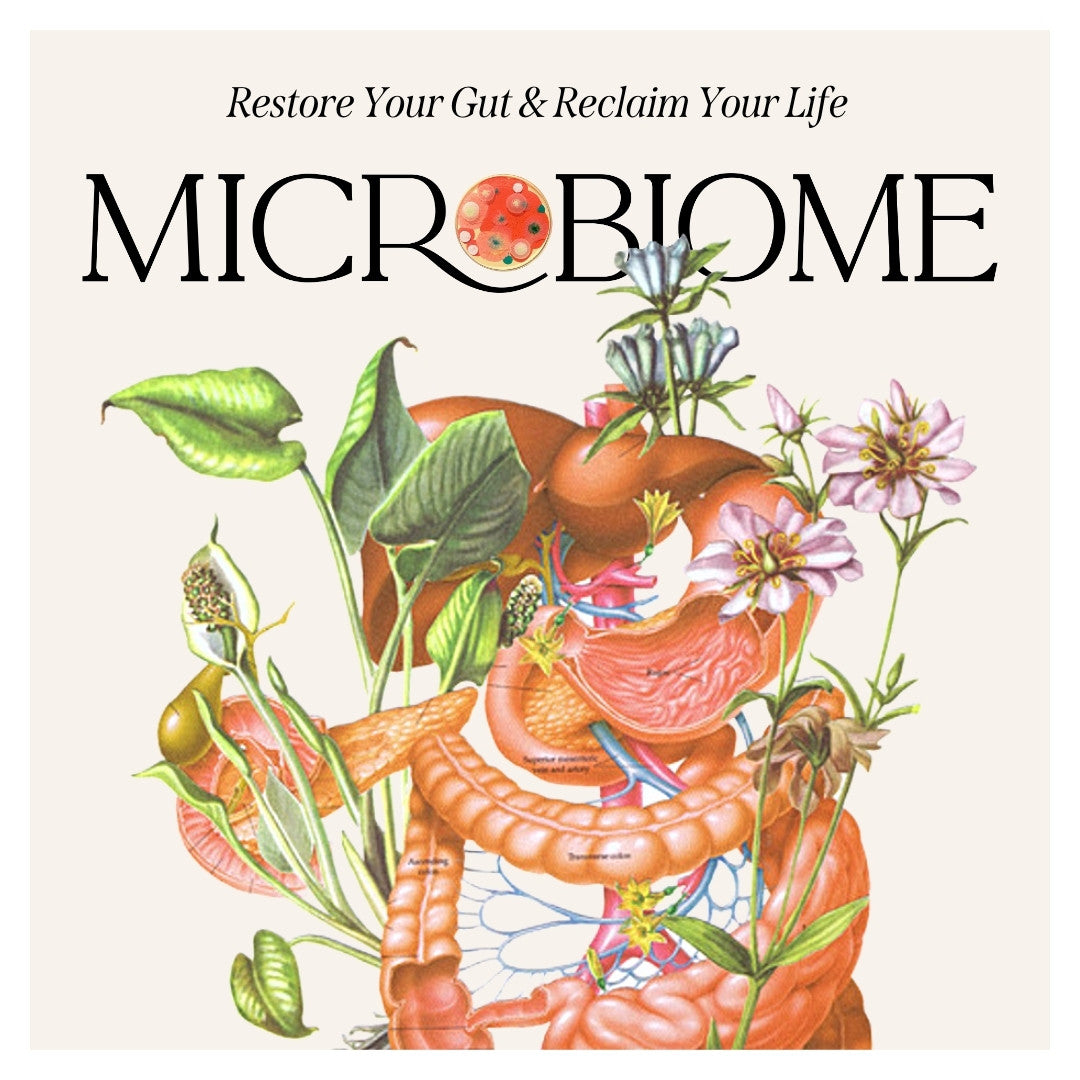

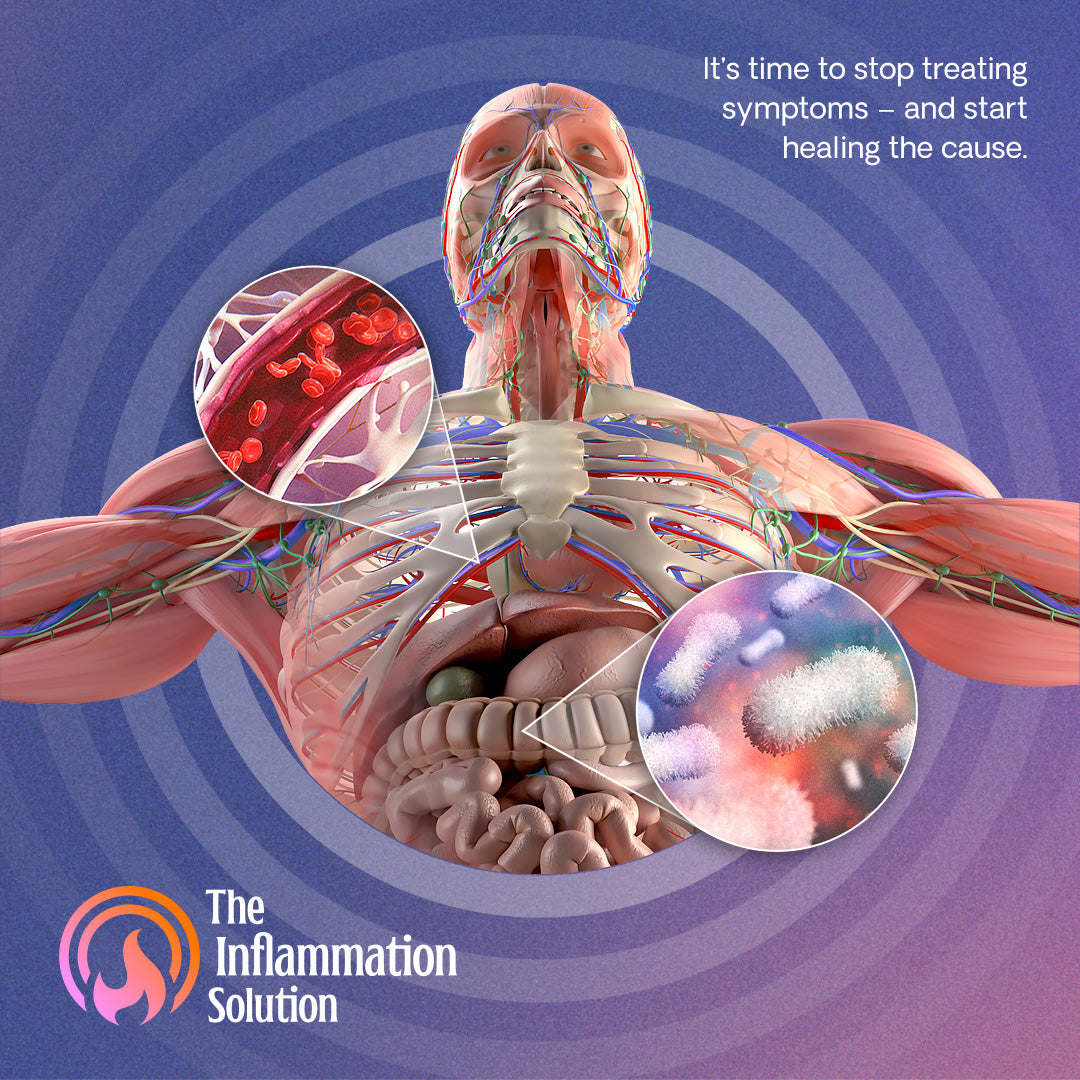

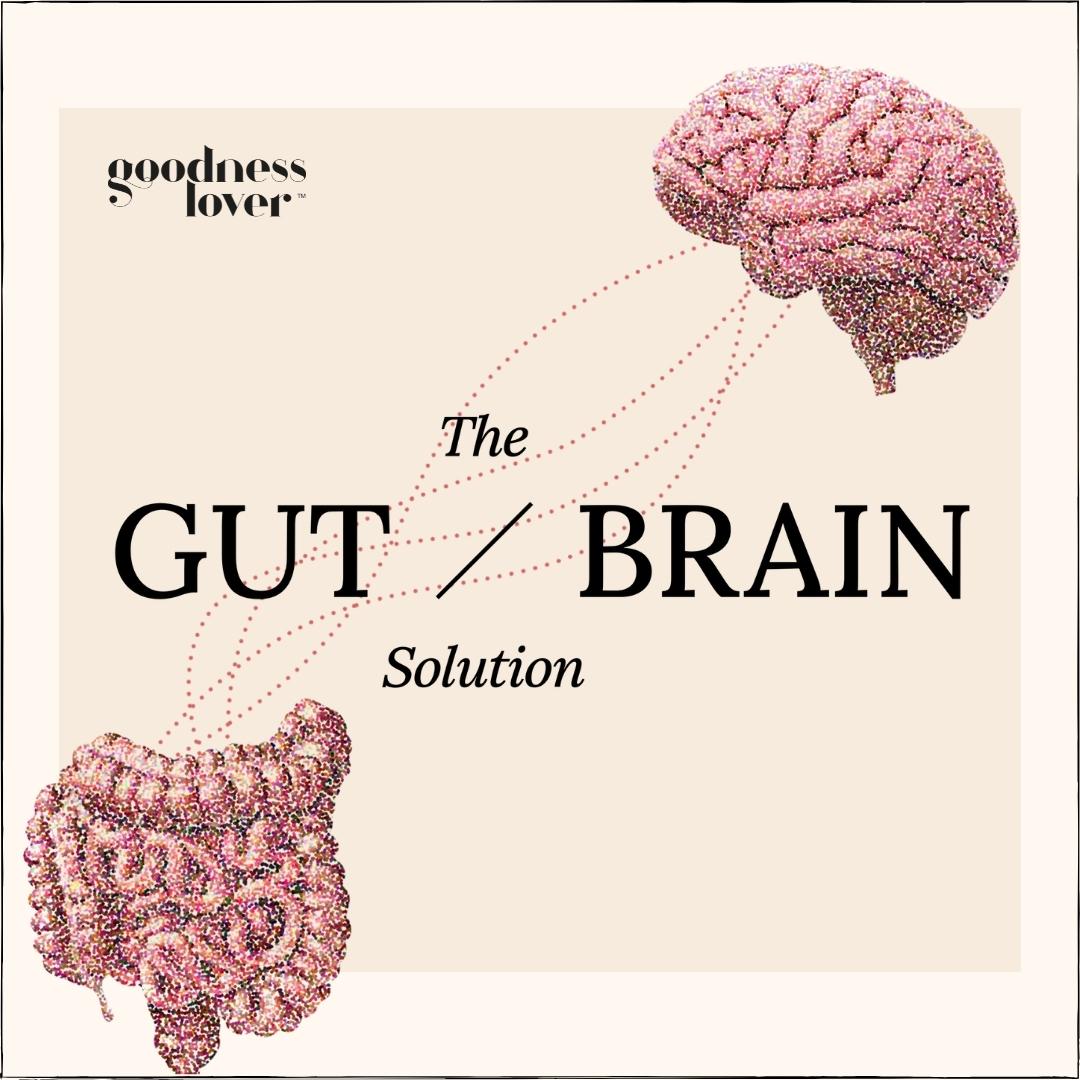

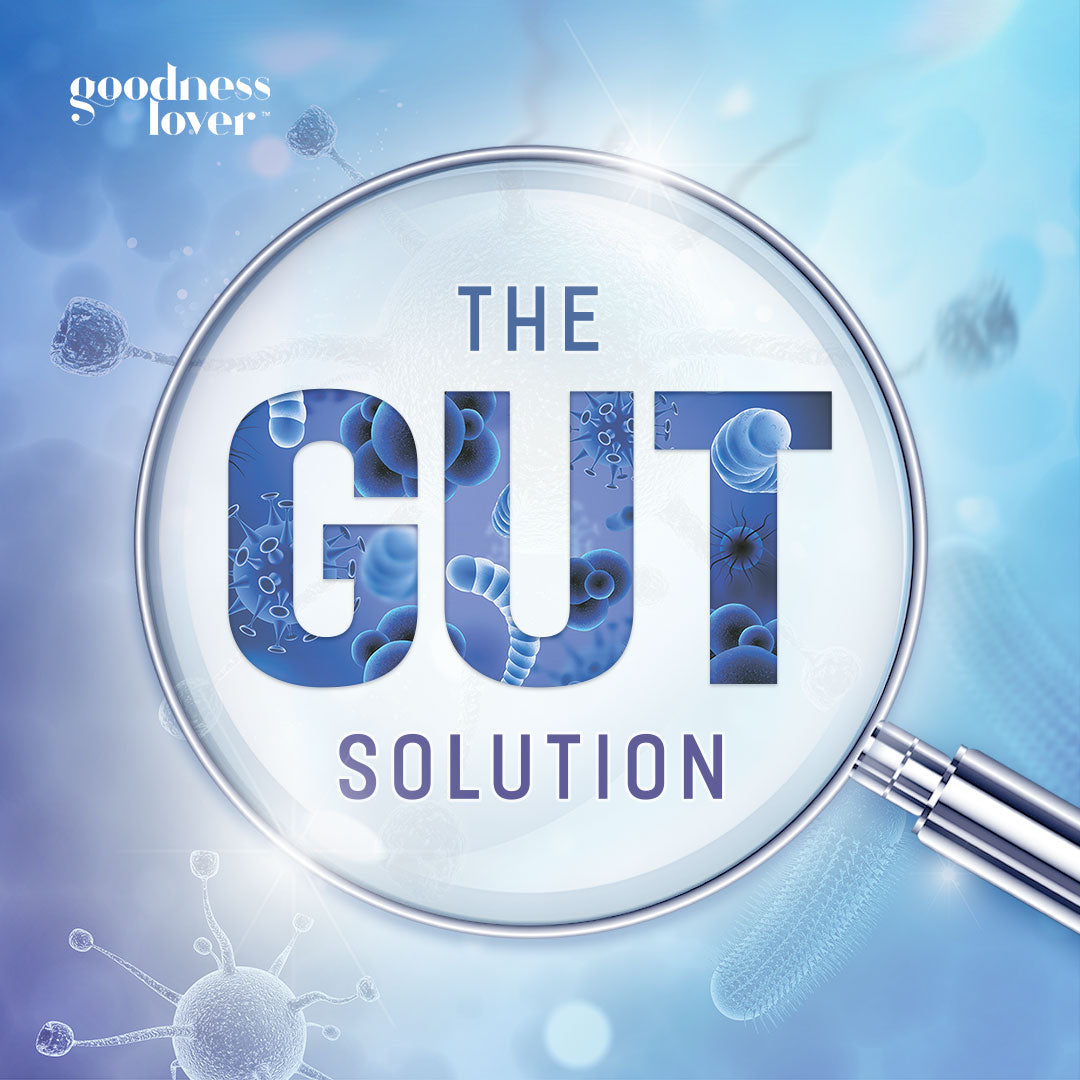

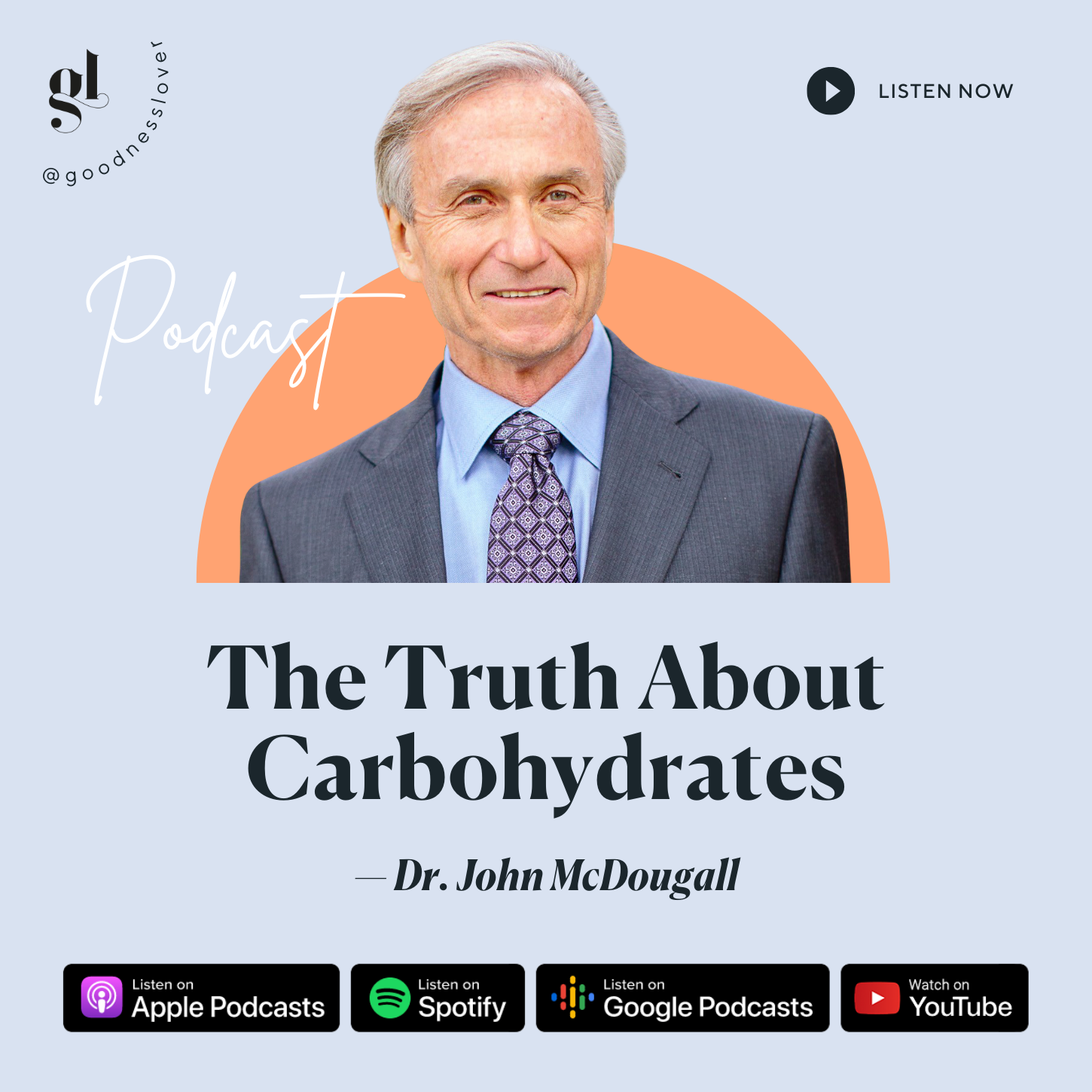
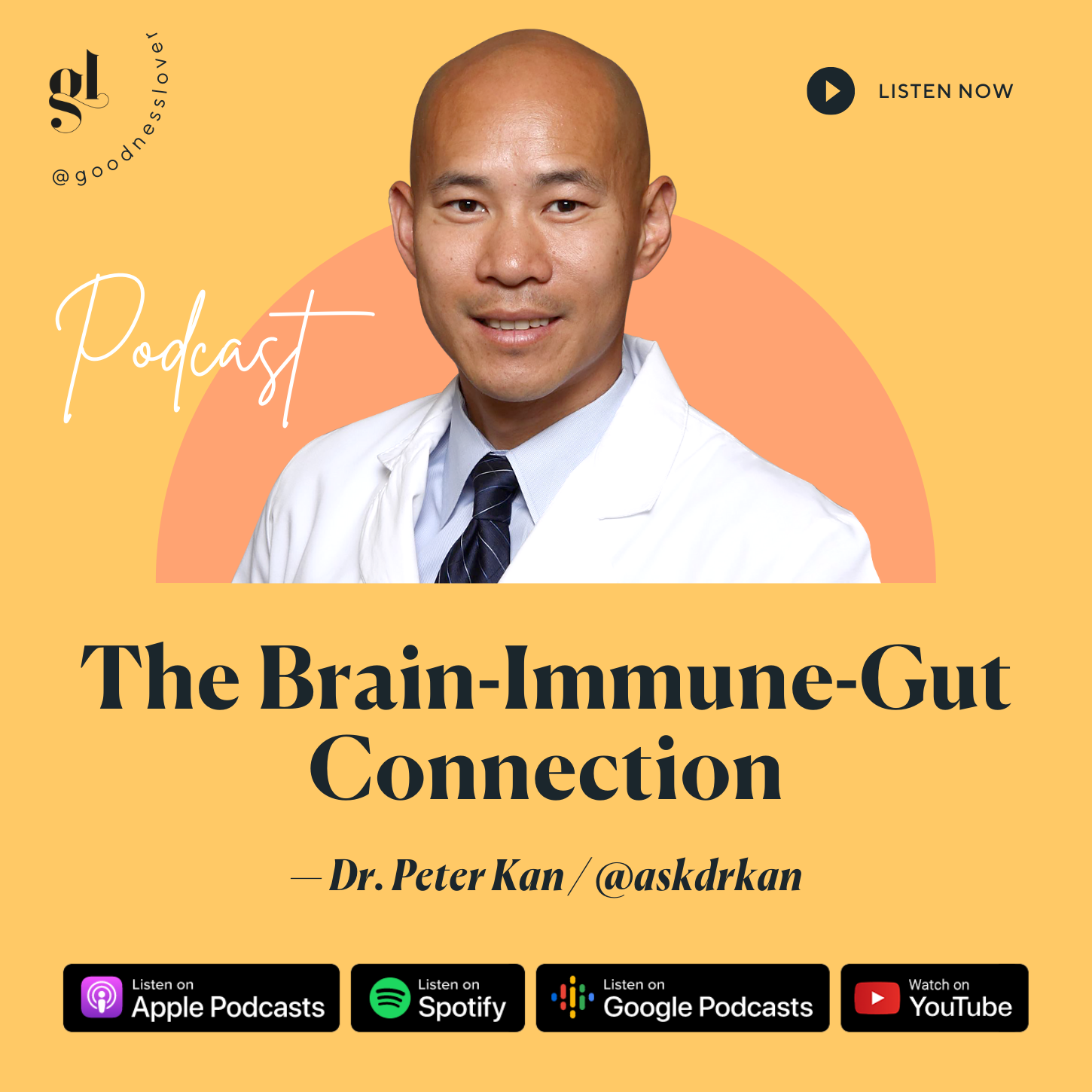

What Do You Think? Comment Below: